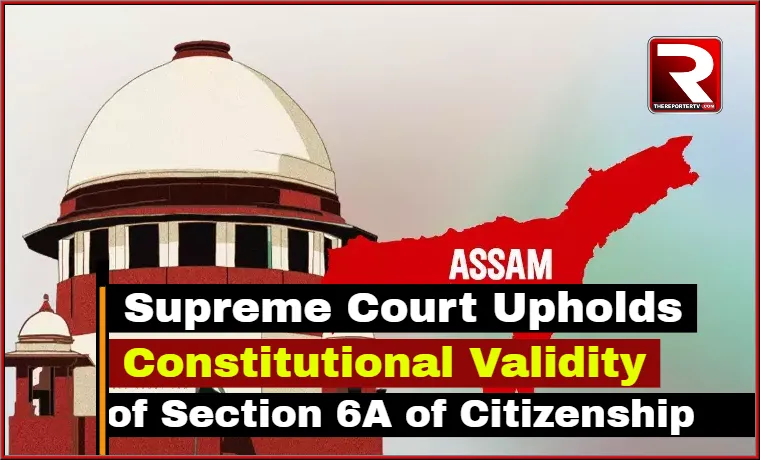New Delhi : In a landmark ruling, the Supreme Court of India upheld the constitutional validity of Section 6A of the Citizenship Act, 1955, which has been a focal point of legal and political debate. A Constitution Bench, led by Chief Justice D. Y. Chandrachud, reviewed a series of petitions challenging the provision, which was designed to implement the Assam Accord and establish the National Register of Citizens (NRC) in Assam in 2019.
The five-judge Bench, which included Justices Surya Kant, M.M. Sundresh, J.B. Pardiwala, and Manoj Misra, reserved its decision last December after extensive oral arguments from both sides. While the majority ruled in favor of upholding Section 6A, Justice Pardiwala dissented, proposing that the section be struck down with prospective effect.
During the hearings, the Court pressed the Union government to clarify the measures taken to curb illegal immigration, particularly in northeastern states like Assam. It requested a comprehensive affidavit detailing the number of Bangladeshi immigrants granted citizenship under Section 6A (2) between January 1, 1966, and March 25, 1971.
Solicitor General Tushar Mehta acknowledged the challenge of providing accurate data on illegal immigrants, stating that many entered the country clandestinely.
The core issue addressed by the Court was whether Section 6A suffers from any constitutional infirmities. The amended provision stipulates that “all persons of Indian origin who came before January 1, 1966, to Assam from the specified territory” and who have been ordinary residents in Assam since their entry shall be deemed citizens of India from that date.
This ruling comes amid ongoing discussions about citizenship and immigration in India, particularly in relation to the sensitive dynamics of the northeastern states. The decision has significant implications for the legal status of many individuals residing in Assam and may influence future policy on immigration and citizenship across the country.


